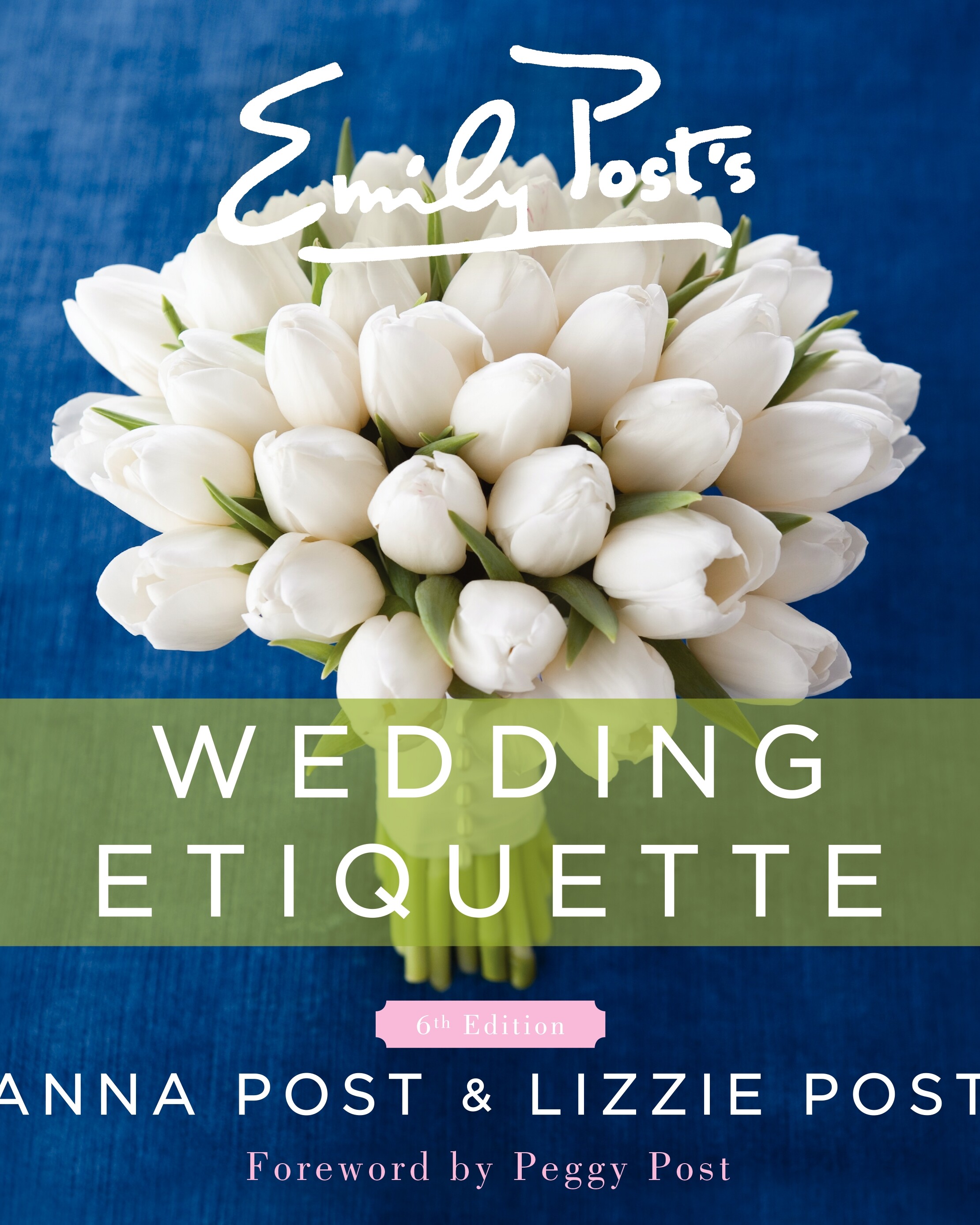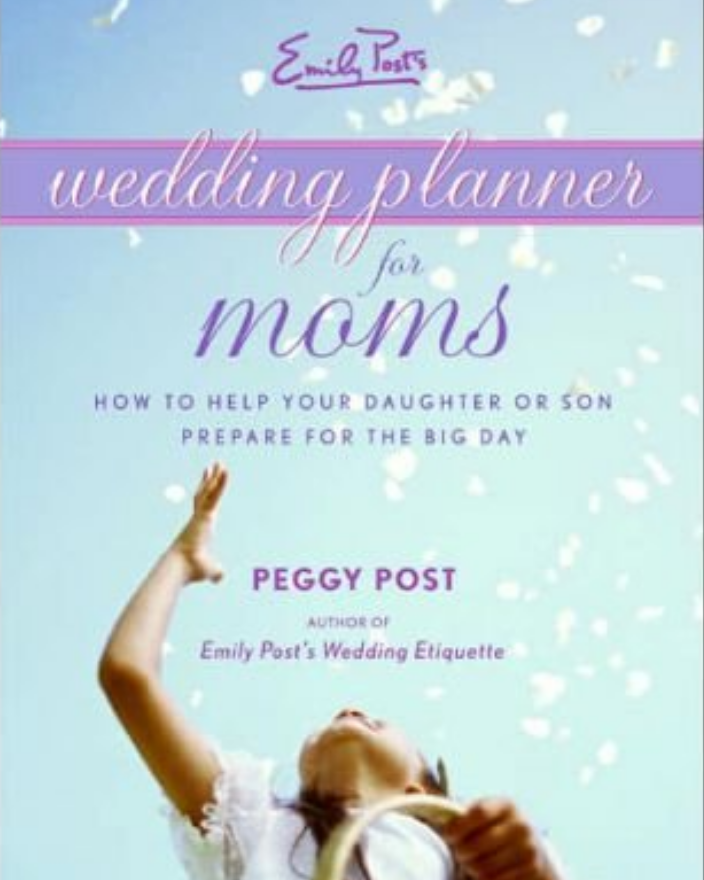
All About Registries
In the age of the internet wishlist, it's easy to
get confused about registries. Learn when to use them, when to avoid
them, and why.
Please note, this article first appeared in our Emily Post Etiquette Substack Newsletter. See below for more details.
All About Registries
Ahhh registries. A literal gift request in writing. They operate a strange space in the world of etiquette because they are both a straight-out declaration of gifts we would appreciate, which feels very counter to the discreteness that etiquette often encourages, and they are an incredibly useful organizational tool, with a reason for existing that is actually considerate.
Registries Throughout History
In the 1922 Emily Post Etiquette book, you won’t find a mention of registries outside of registering for a marriage license and being in the Social Register. That’s because registering for gifts wasn’t a thing when Emily first started writing about etiquette. For a wedding, a couple (the bride) would simply return gifts that were doubles or duplicates, or that weren’t in line with their tastes. As you can imagine this led to quite a few returns for each couple.
With a wedding invitation comes the obligation of sending a gift regardless of whether or not you attend the wedding. It’s the only invitation that functions like this in our social lives. The thinking was that the event you were being invited to was not only a (hopefully) once-in-a-lifetime event but that it was also an extremely significant one.
Over time the combination of the gift obligation regardless of attendance, the importance of the event, and a large amount of returning and exchanging gifts that were going on, it became clear that if there was a way for guests to know what the couple’s tastes were, or the style and type of items they were hoping to use in their new home together, that guests would have an easier time picking a gift and the honorees would have an easier time receiving them. And thus the registry was born.
Don’t be fooled though, this wasn’t totally an invention out of usefulness, stores LOVED the idea.
At first, registries were only something that was mentioned via word of mouth. Only when a guest asked were they directed to the registries. Over time, stores started printing registry cards that couples could include with their invitations - and even this wasn’t considered polite. The invitation, it was deemed, should only ever focus on inviting the guest to the event. All other questions or follow-ups could be dealt with after or outside of the actual printed invitation.
Registries Today
In our world of wishlists and crowdsourcing, it might be easy to think that we are simply living in the age of opportunity where any list or wish we have can be granted if we just get enough people to see it. Such frequent interaction with these tools can lead us to wonder where else they might be useful. Why wouldn’t you include a wishlist with your birthday invitation? Why not create a registry for your housewarming? This is where the etiquette record scratches. Registries are not a one size fits all element of invitations and get-togethers. The reason? Not every party carries the obligation of the guest bringing a gift.
The only two parties that even require the idea of a registry are the wedding and the shower - whether it be a wedding shower or a baby shower. A shower is a party specifically designed with the sole purpose of giving gifts to the honoree. There is no other point to this party. Thus, it would be helpful to include a registry option for guests.
Kids’ Birthday Parties - Gifts are usually part of the party, but not always, and there’s no obligation to give one if you decline the invitation.
Grown Ups’ Birthday Parties - There is no obligation to give gifts and certainly no obligation to send one if you can’t attend.
Housewarming - You are warming the space with presence, not through presents. Gifts are optional and range from a plate of cookies to a houseplant. Remember, there is no obligation for guests to bring anything.
Graduation - There’s no obligation for guests to bring a gift, their well wishes are all that’s needed. Even though many people will get a card and some folks might bring a special gift to give, it’s not the point of the party or the obligation of the guest.
Anniversary Party - Again, there is no obligation that guests bring gifts to this party. And no obligation should they decline the invitation.
One of the biggest things to remember about registries is that they are not a checklist of items that must be completed, they are merely suggestions for guests and guests do not have to purchase a gift from the registry if they either don’t like the items they see or if they have an idea for a gift on their own.
Including Your Registry Well
If you are hosting a wedding or a shower there are some finer points about registries to consider as you plan your invitations.
For Weddings
The registry information whether it’s a link or the name of a store is NEVER (and this is a really big, no exceptions ‘never’) put on the actual invitation. Never ever. Doing so, may seem efficient given the invitation’s obligation of a gift, but it isn’t. Instead it ends up stepping on the toes of the invitation. Rather than patiently allowing the invitation to do its job, and invite the guest to this very special and often monumental event in your life, it tacks on a gift request which distracts from the thoughtfulness of the invitation as if to say, You’re invited to this very very special event and even with all the other details that you will need to sort out, lodging, time off from work etc…I want to be most helpful by telling you exactly what you can get me as a gift. Wrong message indeed.
Prior to wedding websites, registries were word of mouth only - at least from an etiquette perspective. Some people would put them in with enclosures but even that was considered a bit gauche, though it became more popular as time when on. The wedding website, however, became an invitation godsend. Without featuring specifics, a wedding website could be included at the foot of the invitation or on a card enclosed with the invitation and because it contained ALL the extra wedding information (attire, the couple’s story, lodging, schedules, and the registry links) it wasn’t considered rude. Because it was one small line and not a ton of extra information, it didn’t feel like the invitation itself was being skipped over for the details, and because many of the details are for the guests’ benefit, it didn’t feel as crass as the registry information alone might have.
Today’s Weddings - Use the wedding website URL to get people to your registry link rather than your registry link on the wedding invitation.
For Showers
For wedding and baby or new-child showers, it’s okay to use a registry because these parties are specifically created around gift-giving. And furthermore, unlike a wedding where the point of the party is the couple’s matrimony and celebrating it, the shower is just about a singular event where gifts are given, it’s okay for a shower invitation to put the registry URL right on the invitation. Those who aren’t as comfortable doing so can still use word of mouth, but for this particular party, it’s okay to put the registry store or link right on the invitation.
Today’s Showers - It’s okay to put registry information directly on a shower invitation.
Using The Registry
If you are an honoree who is having either a wedding, a baby or new child shower do your best to set up your registry with a wide range of items. When it comes to prices, even things in the $1-10 range are great, and having a number of them is really helpful for guests. Be careful not to have too many items that are higher priced and see out options that allow guests to contribute toward a bigger priced item without having to purchase it outright. Both of these tactics will make your registry feel more inclusive to your guests. The last thing you want is for a guest to feel priced out of your registry choices.
If you’re choosing charities for your registry be sure to have a number of options that either don’t have political or religious affiliations or that represent a diverse group of options for guests to donate to.
As a guest, (and not a bad thing for honorees to remember too) you do not have to purchase a gift from the registry for the wedding or shower. The registry is just supposed to be a helpful suggestion and a way to get to know the couple’s/parent(s)’s taste.
This article first appeared in our Emily Post Etiquette
Substack Newsletter. If
you've enjoyed this content or are looking for more, please sign up for
our newsletter below so it can be delivered straight to your inbox.
Mondays - Awesome Etiquette Weekly Podcast Episode + Etiquette Extra
Thursdays - Etiquette Today or Etiquette Throwback article
Saturdays - The Saturday Sip - Weekly Etiquette Tip, 1950's Emily Post Cookbook Recipe, and Emily Post quote.










